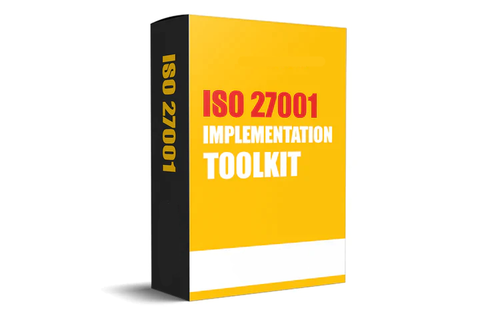The Significance Of ISO 27001 Certification
In an age defined by digitalization and the constant expansion of technology and information, protecting sensitive data and information has become a priority. Cyber threats, privacy concerns, and data breaches have increased, leaving organizations exposed to potentially catastrophic risks. ISO 27001 certification has become a crucial framework for establishing robust practices of information security in response to these threats. This internationally recognized certification outlines a set of comprehensive standards and guidelines that are designed to strengthen an organization's Information Security Management System (ISMS).

ISO 27001 Certification: A Must For Modern Businesses
Explore why ISO 27001 is so important. Its value can be seen from a variety of angles.
1. Mitigating Cybersecurity Risks
Cyber-attacks, data breaches, and unauthorized access are all possible due to the proliferation of cyber threats. ISO 27001 requires organizations to identify, assess, and manage potential risks. This allows them to implement safeguards in a proactive manner. ISO 27001 demonstrates an organization's commitment to information security and enhances its ability to combat evolving cyber threats.
2. Long Term Sustainability
ISO 27001 certification is a long-term solution to the problem of information security. Businesses can build a long-lasting security framework by integrating security practices into their culture and processes. This proactive approach helps reduce the risk of security incidents and the associated costs. It also contributes to the sustainability of an organization.
3. Legal Compliance And Regulatory Obligations
Compliance is a must in a world governed by strict data protection regulations. (such as GDPR and HIPAA). ISO 27001 certification can be a powerful tool to align an organization's policies and practices with regulations. Compliance not only helps avoid legal penalties but also builds trust with stakeholders such as customers, partners, and regulatory bodies.
4. Enhancing Reputation
A strong reputation in the field of information security is a key competitive advantage. ISO 27001 certification is an independent validation of a company's commitment to protecting information assets. This, in turn, fosters trust with customers, partners, and investors, which boosts the reputation of an organization.
5. Business Continuity And Risk Management
ISO 27001 is a risk-based management system for information security. Organisations can protect their most important information assets through risk assessment and the implementation of appropriate controls. ISO 27001 also mandates that an organization develop a business continuity plan to ensure they can respond effectively to disruptions and minimize downtime.
6. Efficiency And Streamlined Processes
ISO 27001 certification requires the implementation of processes, procedures, and controls that are well-defined. This structured approach improves operational efficiency through the elimination of redundancies and errors. In turn, this allows organizations to optimize their resource usage and increase productivity.
7. Protecting Confidential Information
Businesses collect a lot of confidential data, such as intellectual property, trade secrets, and proprietary information. ISO 27001 provides a systematized methodology for classifying sensitive information, protecting it, and handling it. This framework ensures information is only accessible to authorized personnel and reduces the risk of corporate espionage and data leaks.
8. Partnerships And Third-Party Trust
The ISO 27001 certification creates trust among third parties such as clients, vendors, and business partners. This certification demonstrates a company's commitment to confidentiality, integrity, and availability of information. This confidence can lead to more robust partnerships, streamline collaborations, or increase market opportunities.
9. Employee Engagement And Awareness
Information security is the shared responsibility of every employee in an organization. ISO 27001 encourages employee engagement and awareness through clear policies and training programs. Employees who understand their role in protecting information are better equipped to prevent security breaches.
10. Adaptability And Continuous Improvement
ISO 27001 is based on the Plan-Do-Check-Act cycle (PDCA), which fosters a culture of continual improvement. Organisations assess their ISMS regularly, identify areas of improvement, and adapt practices accordingly. Iterative processes ensure that information security is aligned with evolving threats and technology advancements.
11. ROI And Cost Savings
The initial cost of obtaining ISO 27001 Certification may appear high, but it can lead to substantial savings over time. As part of the ISO 27001 certification process, proactive measures and controls can be implemented to prevent data loss and costly security breaches. The certification can also enhance the reputation of an organization, leading to higher customer trust and revenue.
12. Global Recognition And Market Access
ISO 27001 certifications are internationally recognized and facilitate access to global markets. Before entering into business relationships, many multinational corporations and government bodies demand that their vendors and partners demonstrate ISO 27001 conformity. This certification can help you gain access to lucrative new markets.
The Core Purpose Of ISO 27001
ISO 27001's core purpose is to provide a comprehensive framework that can be used by an organization to effectively manage and safeguard information security. ISO 27001, a globally recognized standard, provides guidelines and best practices for the development of Information Security Management Systems.
ISO 27001 is a standard that aims to protect the confidentiality, integrity, and availability of sensitive data and information assets. This is done by systematically addressing all the threats and risks associated with information security regardless of industry or sector.
Conclusion
ISO 27001 certification is a comprehensive approach to information safety in a digital age where data breaches are a serious concern. ISO 27001 promotes security awareness, risk management, and continuous improvements, allowing businesses to thrive in an ever-changing threat landscape. ISO 27001 certification allows organizations to not only protect valuable data assets but also enhance their reputation and create a more secure and safe digital ecosystem.


